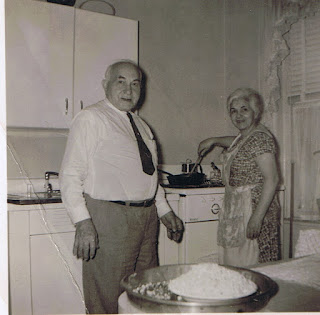Stay Calm and Learn More
“I like to take my time, I mean, that when I want to do a thing, I like to take my time and do it right.”
These words begin one of my favorite songs of Fred Rogers. Mr. Rogers had a calm and relaxed style which quieted many a soul. When I was teaching, I often played this song to center my class for learning. It worked every time.
Children come to school from a wide-variety of homes. Some wake up to a hot breakfast ready on the table and parents who help them into their coats and walk them to the bus stop. Some are rousted out of bed by a rushed parent handing them a protein bar as they race out the door. Others wake up to an empty house, dress themselves, and run for the bus.
Do you remember riding the school bus? Kids bounce up and down on the seats as the bus driver struggles to maintain order while keeping her eyes on the road. Happy kids, scared kids, sad kids and bossy kids all ride together.
All of these children — the well-fed, the hungry, the happy, the scared, the bossy and the bossed, arrive at school and are expected to settle down to learn. Many are so anxious that the tiniest bit of learning cannot squeeze through their stress and into their brains.
Paul Tough, author of Helping Children Succeed: What Works and Why, writes that stressed children often lag significantly behind calmer students. Studies show that students who are given emotional support at home and in school improve academically, socially, and emotionally. They score higher on tests, reduce their aggressive behaviors and increase their self-control.
In these studies, researchers encouraged parents to spend more time with their children, read to them, play with them, sing songs, and relax together. In school, teachers were instructed to set clear routines, to redirect negative behavior (instead of inflicting negative consequences) and to model positive attitudes. A relaxed atmosphere benefits both children and adults.
When these guidelines were adopted in one inner-city preschool, the students improved in attention, impulse control, and academic skills in vocabulary, letter-naming and math, “despite the fact that the training provided to teachers [and parents] included no academic content at all.” Calmer homes and calmer classrooms led to calmer students who learned more.
Simple changes in daily routines bring big benefits. Set a regular bedtime and stick to it. Prepare for the next morning the night before. Pick out clothing, put the homework in the book bag, put the coats and shoes by the door. When possible, enjoy simple family meals together. Review the day. Plan for the weekend. Read together before bedtime. Hug a lot.
Children who are surrounded by adults whose attitudes and behaviors are “warm, stable and nurturing” are better prepared to learn than children who inhabit “chaotic or unstable” environments. In other words, kids who have less stress, learn more. Parents and teachers who create calm and supportive homes and classrooms help children develop the skills needed to navigate in a chaotic world.
Relax with your children or students. Reduce stress and increase positive attitudes. Give them attention and support.
Take your time and do it right.






